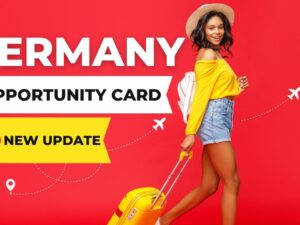Content creation is now a career, not a hobby. If you’re a YouTuber, Twitch/Live streamer, or short-form creator thinking about moving, touring, or scaling your business internationally in 2025, this guide covers the visa routes that work best for creators — who qualifies, what to prepare, real-world examples, and a tactical checklist so you can act fast.
I wrote this from the perspective of advising creators I’ve worked with: practical, borderline-surgical, and focused on what immigration officers actually want to see (not hype). Expect specific document lists, three easy-to-scan tables, and 10 FAQs that answer the sticky follow-ups creators always ask.
Quick map — which visas matter for creators in 2025
Creators typically fall into three buckets when choosing visas:
-
Talent/Extraordinary-ability visas — for creators with proven national/international acclaim (e.g., U.S. O-1).
-
Digital nomad / remote-work visas — for creators who earn remotely and can show steady income.
-
Freelancer / self-employment residency permits — for creators wanting a longer-term base in a specific country (e.g., Germany’s Freiberufler).
Each path has different thresholds: evidence of acclaim, minimum income, client contracts, or local business registration. Below I unpack the major options that work for YouTubers and streamers in 2025.
1) The O-1 (U.S.) — best if you already have measurable influence
Who it’s for: Creators with national or international recognition — big collaborations, major press, awards, or unusually high compensation compared to peers. The O-1 is employer/agent-sponsored; it’s popular for creators who tour, film, or take U.S.-based contracts.
Why creators use it: It recognizes “extraordinary ability” in arts/entertainment and can be renewed. It’s also a common stepping stone toward U.S. permanent residency for top creators. The USCIS continues to refine how it evaluates creators under O-1B (arts/entertainment), making it an accessible path for digital creators who can produce strong evidence packages. USCIS+1
How to prove it (examples):
-
Major features in national media, long-form interviews, or long-running shows.
-
High-profile collaborations (e.g., brand campaigns, TV appearances).
-
Awards, prestigious nominations, or expert letters from recognized industry figures.
-
Evidence of significant earnings relative to peers (contracts, payout statements).
Tactical tip: Build a dossier now: organized press clippings, collaboration contracts, speaking/hosting gigs, and testimony from recognized industry professionals. Lawyers love structure; give them a neat exhibit list.
2) Spain, Portugal, Estonia and other digital-nomad visas — simple, fast, great for mobility
In 2025 many European countries and small economies still offer digital-nomad or “telework” visas that fit creators who work remotely and bill clients outside the host country. Typical conditions: minimum passive or active monthly income, health insurance, and a clean background check.
-
Spain’s Digital Nomad Visa: Designed for remote workers; requires proof of income and registration steps (NIE etc.). Processing and initial stay lengths vary; renewals possible.
-
Portugal (D8 digital nomad / remote work visa): Available to remote workers with outside income and proof of funds; thresholds and proof standards have been updated in 2024–2025.
-
Estonia: e-Residency + nomad visa options remain attractive to creators running EU-registered businesses. e-Residency
These visas are popular because they’re straightforward: steady income + insurance = legal right to reside and work remotely for months or years. They’re not designed for taking local employment (selling services to local companies may need additional permits).
3) Germany’s Freiberufler (freelancer) permit — great for creators who want a European base
If you want to settle in the EU and work locally (and with local clients), the German freelance visa is a favorite. Germany expects evidence of local demand (client letters, contracts) and financial means. For creators who offer services (video production, channel management, voiceovers), this route often beats a pure digital-nomad visa because it allows local commercial activity.
Pro tip: Have at least 1–2 German client letters with signed contracts before you apply — that’s the fastest way to convince the local Ausländerbehörde.
4) UAE Golden Visa & influencer categories — long-term residency for creators
The UAE expanded Golden Visa categories to include digital content creation and related fields in 2025, making it a hot option for creators building regional hubs, corporate deals, or looking for tax advantages and a stable long-term base. Dubai and Abu Dhabi also offer influencer-specific licensing tracks and creative free-zone packages that support residency and business operations.
Why consider UAE: long residency (up to 10 years), business-friendly free zones, fast company setup for sponsorship, and increasing recognition of content creation as a professional category.
5) Other niche or country-specific routes worth knowing
-
Thailand Smart Visa / LTR — for highly skilled creators and digital professionals; can be a fit if you have partnerships, production needs, or business plans in Thailand.
-
Czech/Poland long-term self-employment permits — lower barriers for freelancers, reasonable costs. (Good for creators who want central-Europe access.)
-
Specialist visas — some countries now offer influencer-specific residency or start-up visas if you register a local company and meet investment or job-creation thresholds.
Table 1 — Quick comparison (at-a-glance)
| Visa / Route | Best for | Typical stay | Key proof needed |
|---|---|---|---|
| U.S. O-1 | High-profile creators with acclaim | 3 years initial (renewable) | Awards, major press, high earnings, agent/employer sponsor. USCIS |
| Spain Digital Nomad | Remote creators wanting Iberia base | 1–3 years | Minimum income, health insurance, NIE. |
| Portugal D8 | Remote creators targeting EU | 1–2 years (renewable) | Proof of income, accommodation. |
| Germany Freiberufler | Creators offering local services | Residence permit (long-term) | Client letters/contracts, funds. Germany Visa |
| UAE Golden/Influencer | Creators wanting long-term, tax-friendly base | Up to 10 years | Licensing, proof of content business, criteria vary. |
Table 2 — Typical evidence and documents (checklist)
| Document type | Why it matters | How creators should prepare |
|---|---|---|
| Press coverage & feature list | Shows recognition and reach | PDF clippings, YouTube embeds list, screenshots with dates |
| Contracts & invoices | Proves income and professional activity | Export invoices, contract PDFs, proof of payment |
| Letters of recommendation | Validate “industry recognition” | 3–5 letters from recognized peers/brands |
| Bank statements & tax returns | Demonstrate stability | 6–12 months statements, recent tax returns |
| Portfolio (clips, showreel) | Quick proof of work quality | Time-stamped clips and view stats |
Table 3 — Typical processing times & cost ranges (ballpark 2025)
These are indicative; always confirm with consulates or lawyers for up-to-date fees.
| Visa | Typical processing (weeks) | Cost estimate (USD) |
|---|---|---|
| O-1 (U.S.) | 8–16 weeks (premium processing available) | $460–$3,000+ (lawyer fees vary) |
| Spain Nomad | 4–12 weeks | €100–€500 (plus insurance & legal help). |
| Portugal D8 | 4–12 weeks | €200–€600 + living proof. |
| Germany Freiberufler | 4–20 weeks | Administrative fees €100–€300 + lawyer/accountant costs. |
| UAE Golden | 2–8 weeks | Varies widely (free zone setups + licensing fees). |
Real examples & strategy (mini case studies)
Case A — Amelia (YouTuber, 500k subscribers)
Goal: Spend half the year in Europe, film and collaborate with EU brands. Strategy: Apply for Spain’s digital-nomad visa while registering an EU company to simplify brand deals; keep full accounting and invoices from non-Spanish clients. Result: Legal residency in Spain for remote work, easier VAT/compliance for EU deals.
Case B — Raj (Tech streamer, 2M Twitch followers)
Goal: Host live events in the U.S. and accept brand deals there. Strategy: Build an O-1 petition with letters from big sponsors, press features, and event bookings. Used an agent in the U.S. as petitioner. Result: O-1 approved on first filing (example pattern many applicants follow). mcenteelaw.com
Case C — Lina (multilingual creator, services to German agencies)
Goal: Live in Berlin and contract with German agencies. Strategy: Line up 2 German client contracts + accountant, apply for Freiberufler visa. Result: Approved after showing contracts and financial plan. jobbatical.com
Practical roadmap — how to pick and prepare (6 steps)
-
Decide intent: short-term travel vs long-term residency vs work-in-country.
-
Match evidence to visa type: acclaim ⇒ talent visa; steady income ⇒ nomad visa; local clients ⇒ freelancer permit.
-
Collect evidence now: press, contracts, invoices, analytics screenshots, brand deals, letters. (Organize by date and signatory.)
-
Get legal help early: talent visas like O-1 are evidence-heavy; a lawyer will craft a narrative. For nomad visas, many applicants succeed on DIY if documents are organized.
-
Mind taxes: residency = tax obligations. Speak with a cross-border tax advisor before moving.
-
Plan for renewals: most visas need proof of continued income or activity to renew — track metrics monthly.
My practical tips from advising creators
-
Don’t over-index on follower count. Immigration officers want proof of sustained professional activity — earnings, contracts, reputable press, industry letters. Big follower numbers help, but conversion (income, partnerships) is usually stronger evidence.
-
Build a narrative dossier. Each visa wants a story: “This is my business, these are my clients, here’s why the host country benefits.” Frame the evidence to that end.
-
Keep contracts dated and signed. Verbal agreements don’t help in a pinch.
-
Local sponsors/agents matter for O-1 and similar visas. An agent who can petition on your behalf simplifies the process.
-
Tax residency is real. Moving changes your tax filing obligations; get professional advice.
10 Frequently Asked Questions (short, usable answers)
-
Q: Can a small YouTuber get an O-1?
A: It’s rare — O-1 requires sustained national/international acclaim. Smaller creators should target nomad or freelancer visas first. USCIS -
Q: Do digital nomad visas allow local client work?
A: Usually no; nomad visas expect income from outside the host country. For local work, a freelancer permit is better. -
Q: Are creator “influencer” categories real?
A: Yes — countries (and UAE specifically in 2025) are creating influencer tracks or recognizing digital content as qualifying activity. But requirements vary. -
Q: How long does O-1 processing take?
A: Typically 8–16 weeks; premium processing can speed it up but costs extra. -
Q: Do I need a lawyer for digital nomad visas?
A: Not always — many succeed DIY if documents are clear. For complex cases or talent visas, a lawyer is strongly recommended. -
Q: Will moving break my YouTube monetization?
A: No — platform monetization is separate. But country rules can affect tax withholding, payment options, and VAT for EU viewers. Check platform settings and tax forms. -
Q: Can I switch visa types later?
A: Yes — many creators start on a nomad visa and later apply for talent or freelancer permits when ready. Keep records that show evolving professional activity. -
Q: What’s the single best document to add to any application?
A: Signed contracts with dates and payment evidence. Those solve a lot of credibility gaps. -
Q: How many recommendation letters do I need for O-1?
A: Typically 3–6 letters from established industry figures are common. Quality over quantity. -
Q: Do I automatically become a tax resident after 6 months?
A: Many countries use the 183-day rule, but definitions vary. Always consult a tax advisor for the country you choose.
Final checklist — apply-ready (copy & use)
-
Gather 12 months bank statements & invoices
-
Export analytics (YouTube/Twitch) with date stamps
-
Collect press clippings & sponsor contracts (PDF)
-
Get 3 letters from industry contacts (signed)
-
Confirm health insurance that covers the host country
-
Book consultation with immigration lawyer (talent visas)
-
Talk to a cross-border tax professional
Closing — which route should you pick?
-
If you have established industry recognition or big brand deals and need U.S. access: O-1 is your target. Start building an evidence portfolio now. USCIS
-
If you want flexible mobility and can prove stable remote income: look at Spain, Portugal, Estonia and similar digital nomad visas.
-
If you want to work with local clients in Europe: get serious about the Germany Freiberufler or similar local freelancer permits. Germany Visa
-
If you want long-term residency with an attractive business center and possible tax perks, UAE Golden/Influencer routes are increasingly solid for creators.





